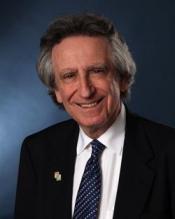CGS-authored

In a first, the Human Fertilisation and Embryology Authority (HFEA) of the United Kingdom recently approved a research application to use a gene-editing tool on early human embryos (http://nyti.ms/219K7DR). The applicant, Kathy K. Niakan, PhD, a developmental biologist with the Francis Crick Institute in London, England, is seeking to define the molecular program of the earliest stages of human development.
The studies would use surplus embryos from in vitro fertilization treatments donated by consenting parties and would conclude at the embryonic blastocyst stage without transfer to a recipient uterus. Preliminary experiments to edit out select genes with an eye toward delineating their role in cell lineage fate specification—how the single cell of an embryo develops into different cell lines—may soon be under way.
Although nonhuman embryo research has proceeded unabated on both sides of the Atlantic, nonhuman models may not be the answer. Insights derived using nonhuman models, critical in their own right, must be extrapolated with caution to the human context but cannot fully substitute for research performed on human embryos.
The dividends from human...



